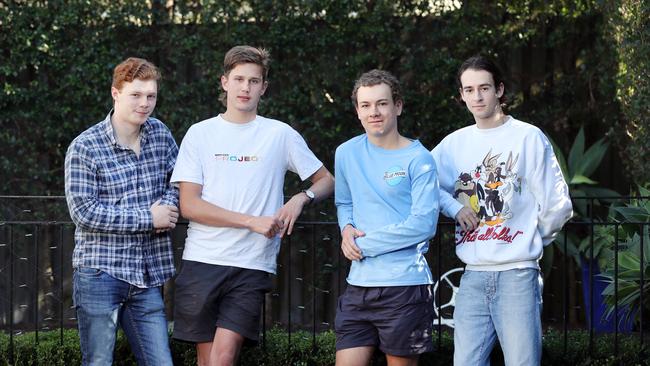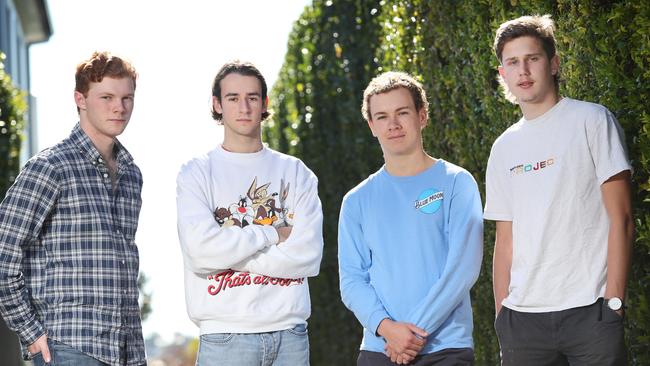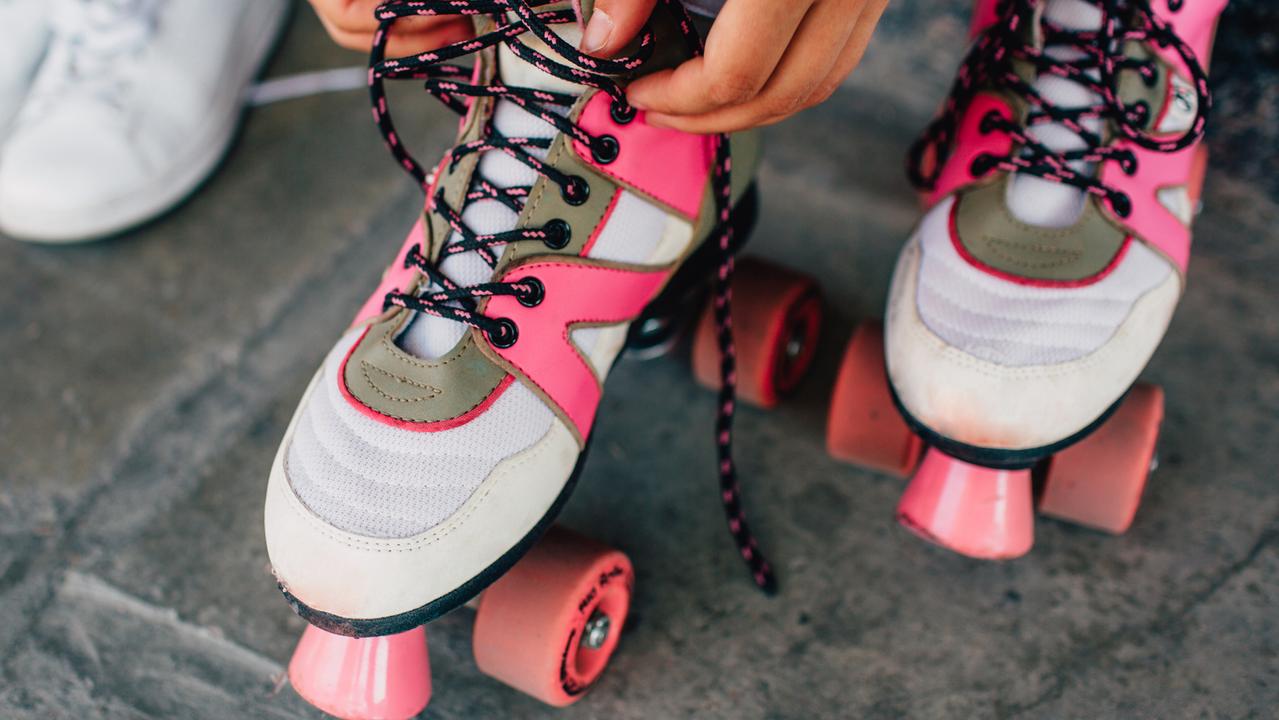What to know if you are planning a gap year
A year off after more than a decade at school sounds like just what the doctor ordered, but there is some important advice you need to heed.

Hibernation
Don't miss out on the headlines from Hibernation. Followed categories will be added to My News.
Choosing your own adventure is a defining moment for school leavers around Australia. For some, marking the transition from high school to the great unknown means heading straight to a job or starting a degree.
But for graduates who grabbed the gap year option with both hands, COVID-19 completely up-ended their best laid plans.
But gap students who spoke to Hibernation have revealed they have focused hard on working and saving, using lessons learned in lockdown to plan and budget.
Sam Gale, 18, started planning his gap year in January 2019, applying to a number of placement programs to get a paid spot working at an English school so he could travel during breaks. He was accepted last June and flew out on the second of January this year.
“I was in a place called Brackley, which is 20 minutes north of Oxford, in the car about an hour out of London. I had six weeks working at the school, then I had a week’s holiday, which was basically my only time to travel when I was over there,” Sam said.

Initially neither he, his friends, nor other “gappers” were particularly worried about the spreading virus and did not think it would affect their plans. It did not take long before Sam’s hard-won overseas adventure began unravelling.
“It began to hit Europe, Italy and became a reality. It was disappointing to see all of our holiday plans, our year plans go up in smoke.
“My plan was to do most of Western Europe, the big touristy countries, because I hadn’t done mainland Europe. I was going to go to (Italy) in the summer, France, Germany, Netherlands, Switzerland, Greece – all of them, really,” he said.
After mandatory self-isolation upon returning on March 16, Sam spent seven weeks picking grapes on a farm with a couple of friends whose gap year had also stalled. He is now considering his options. Like many returned gappers, he is leaning toward a semester 2 start at university instead of resurrecting travel plans in the short-term.
“My dad thinks that I might be able to go back to Europe, but even if that was the case, a lot of people I knew over there have already pulled the pin. Even if I could go back, it probably wouldn’t be the same without a lot of people there, so I’ll probably end up saving my money and going travelling at another point in time,” Sam said.

Close school friends Ben Ronson, 18, Jack Linton, 18, and Henry Wilkinson-Gill, 19 (pictured together) have all been impacted differently.
Rather than throwing themselves into campus life, Ben and Henry have spent their first few months of university distance learning from home – a far cry from the usual antics of freshers – while Jack’s international airfare continues burning a hole in his pocket.
“I was meant to leave in June to go with a group of three other boys. We were planning to go to Europe. We were starting in London and working our way around Europe, going to see some cultural sites, some heritage sites,” he said.
Despite all the cancellations and uncertainty, Jack and his friends are all grateful for the opportunity to work and save.
“It was upsetting to know that I wasn’t able to spend the time with my mates, go travelling and do other things which past years have done. I was obviously very disappointed, but at the same time, I was lucky enough that I hadn’t booked my flight and I hadn’t yet booked most of my accommodation,’ Jack said.
Of the four young men, Ben Ronson was least impacted. Not only had he always planned to go straight from school to university in his hometown, he was also able to keep his job. Throughout the lockdown he continued working for one of the pandemic’s most essential frontline employers: Coles.
“My advice for (Year 12) would be to just work as hard as you can, so that you’ve got the options to do whatever you want, even if you don’t know what they are now,” Ben said.
FIVE GAP YEAR TIPS
Jack Bloomfield did not wait for a gap year before he got busy. The 18-year-old entrepreneur and keynote speaker offered the Class of 2020 his top tips for planning:
1. A GAP YEAR COULD BE AS VALUABLE AS A DEGREE
You are out of your social bubble, away from home and getting real-world experience. A gap year can help you avoid changing degrees halfway through.
2. IDENTIFY YOUR PRIORITIES
Is it earning more money? Travelling the world? Whatever it may be, planning saves time, money and effort.
3. GET OUT OF YOUR COMFORT ZONE
Meet new people, do new things and learn new skills. There is a level of independence you gain that won’t happen twenty minutes away from your family and friends.
4. CONSIDER WORKING FOR NOTHING
Working without pay is not something many Millennials will do. If you’re desperate to work for a particular organisation, it may give you a head start.
5. TRY EVERYTHING
Didn’t think you would ever like hospitality? Try it. Didn’t think you would like working on a farm? Try it. Open yourself to many new opportunities to build confidence in your study or work pathway.
OUTSIDE THE BOX
What would Jack do? jackbloomfield.com.au
Explore gap year options with the Australian Defence Force. Applications are now open: defencejobs.gov.au
Global Work and Travel and other gap year specialists ready to advise and assist school leavers: globalworkandtravel.com
Originally published as What to know if you are planning a gap year


